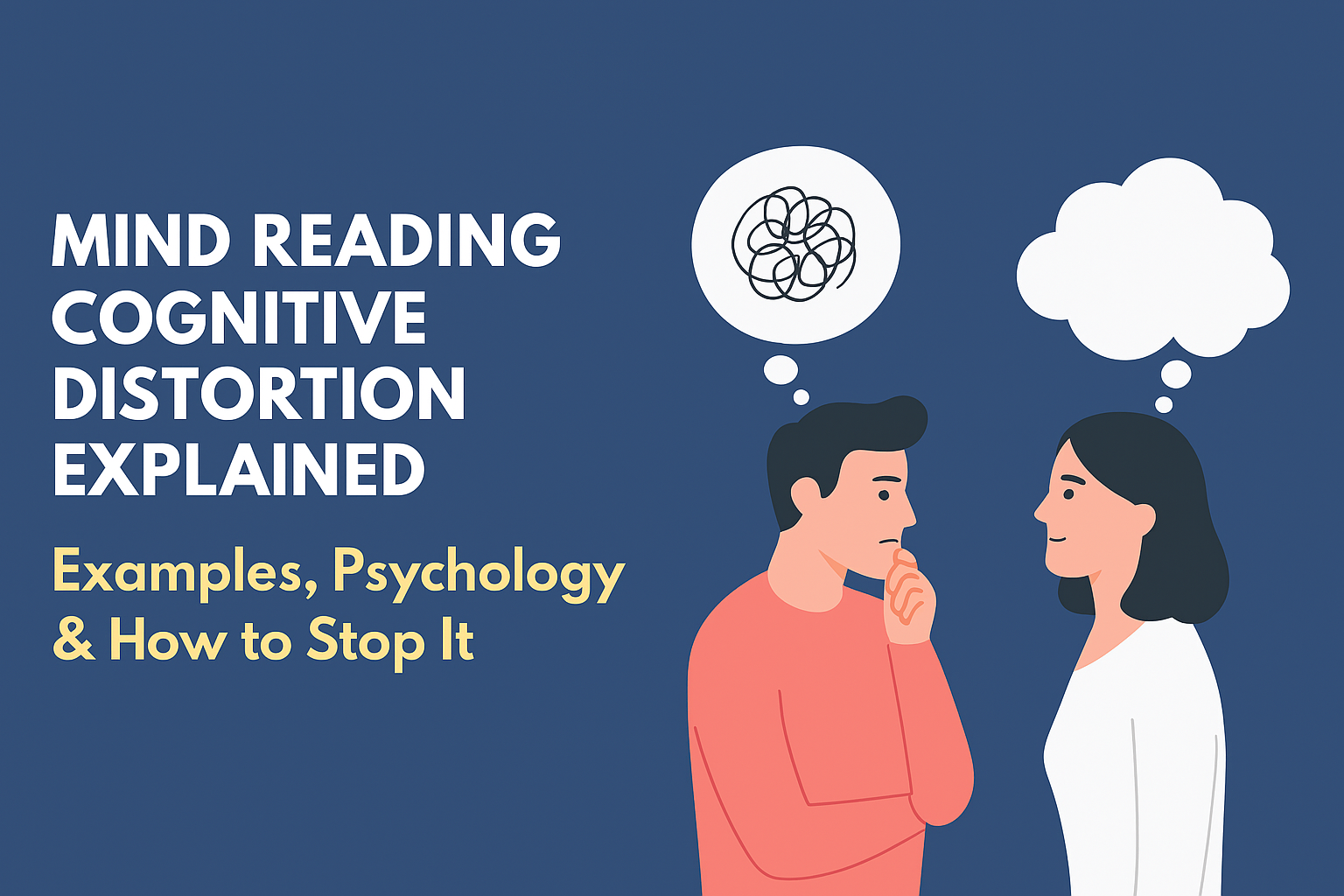Mind Reading Cognitive Distortion Explained — Examples, Psychology & How to Stop It
What Is the Mind Reading Cognitive Distortion?
Have you ever caught yourself thinking, “They must be judging me,” or “She probably thinks I’m stupid” — without any real proof?
That’s called mind reading, a cognitive distortion where you assume you know what others are thinking, usually in a negative way.
In psychology, mind reading is part of a group of distorted thinking patterns that cause unnecessary stress, anxiety, and conflict. When you assume others’ thoughts without evidence, you’re essentially projecting your own fears or insecurities onto them.
The Psychology Behind Mind Reading
Mind reading often develops as a defense mechanism. Our brains evolved to predict others’ intentions for survival, but in modern life, this can backfire.
Cognitive behavioral psychologists explain that this distortion stems from automatic negative thoughts (ANTs) — mental shortcuts that jump to conclusions without data.
For example:
- You see a friend texting while you’re talking and think, “They’re bored of me.”
- A coworker doesn’t reply to your message, and you assume, “They must be upset with me.”
In reality, your friend might just be responding to an urgent message, and your coworker might be busy. But your brain interprets uncertainty as rejection.
Common Examples of Mind Reading Cognitive Distortion
- Social Anxiety Situations
“Everyone at the party thinks I’m awkward.”
→ You avoid conversations and reinforce isolation. - Workplace Scenarios
“My boss didn’t smile today — she must think my work is bad.”
→ You lose confidence and overthink your performance. - Relationships
“He didn’t text me back; he must have lost interest.”
→ You start acting distant or defensive, creating tension that didn’t exist before.
How Mind Reading Affects You
Constantly assuming what others think leads to:
- Increased anxiety and self-doubt
- Miscommunication and strained relationships
- Negative self-talk that reinforces low self-esteem
- Emotional exhaustion from overanalyzing every interaction
Over time, this thinking pattern can make you overly self-conscious and disconnected from reality.
How to Stop Mind Reading Cognitive Distortion
1. Ask Instead of Assuming
When in doubt, communicate directly.
Example: Instead of thinking, “They’re mad at me,” ask, “Hey, is everything okay between us?”
2. Challenge Your Thoughts
Write down your assumptions and question them:
- What’s my evidence for this thought?
- Is there another explanation?
- Would I think the same way if I was in a calm state?
3. Practice Mindfulness
Stay grounded in the present moment.
Mindfulness helps you observe thoughts without automatically believing them.
4. Use Cognitive Behavioral Therapy (CBT) Techniques
CBT helps identify and reframe distorted thinking.
You can learn to replace “They think I’m boring” with “I don’t actually know what they think — and that’s okay.”
5. Build Self-Confidence
When your self-esteem improves, you rely less on others’ imagined opinions.
Engage in positive self-affirmations and celebrate small wins daily.
Final Thoughts
The mind reading cognitive distortion tricks you into believing assumptions are facts.
By challenging these thoughts, communicating openly, and practicing mindfulness, you can break free from this mental trap and enjoy more honest, peaceful relationships.

